20 Tell-Tale Signs Your Pet Is Miserable
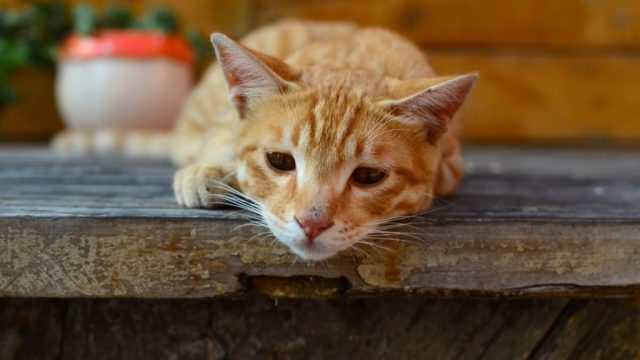
You might think feelings are a purely human characteristic. You’d be wrong—because your pet has plenty of them, too. As Dr. Rachel Barrack of NYC’s Animal Acupuncture explained: “[Animals] experience a full range of emotions, ranging from happiness to sadness and even depression.”
Yes, believe it or not, your pet has the ability to feel a whole spectrum of emotions, including misery. That said, unlike a human, an animal can’t verbally communicate when something is wrong—which means it’s on you to keep an eye out. Here, we’ve rounded up some of the telltale signs your cat or dog might be suffering from pet depression, so they don’t have to go another minute suffering in silence.
1
They’re Not Eating
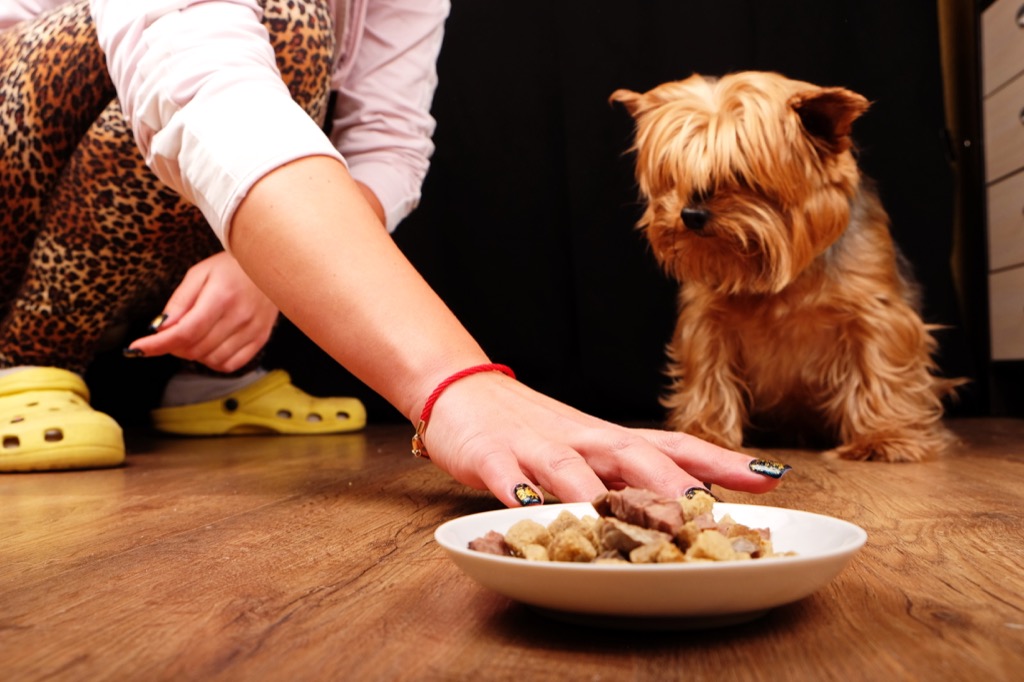
If you take your dog on vacation only to find that they’re noticeably absent during dinner, then it might be time to consider that he or she is feeling down in the dumps in the strange environment. Just like humans, dogs will exhibit decreased appetites when they are preoccupied with their own stress and anxiety.
2
They’re Biting
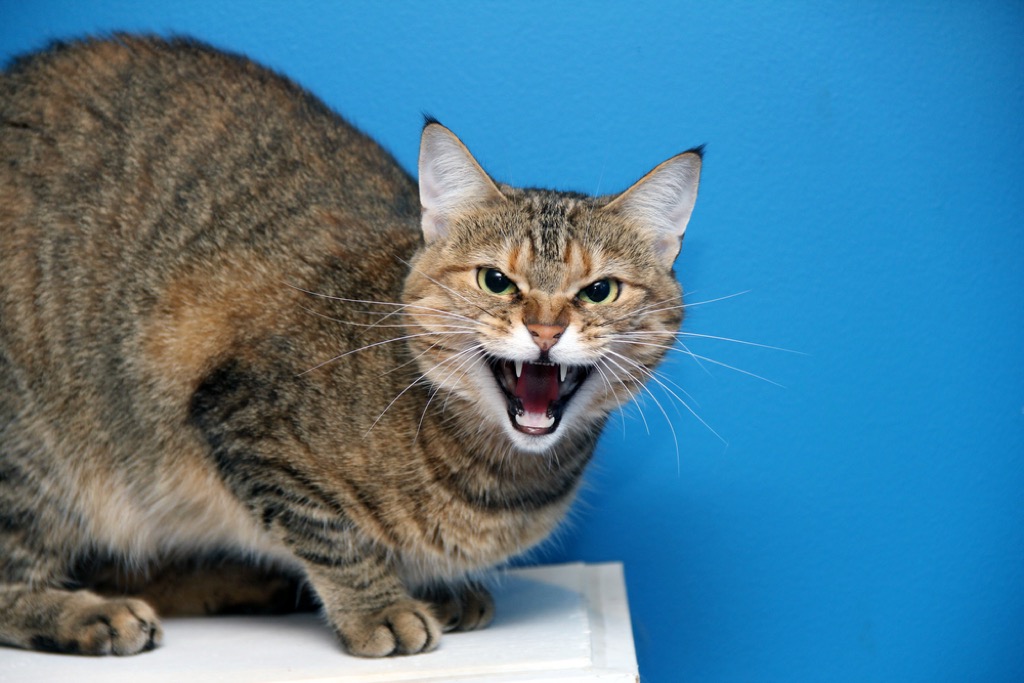
Try not to take it personally if your once cuddly cat or dog is now nipping at you whenever you try to pet them. Odds are that this is just your furry friend’s way of letting you know—albeit, painfully for you—that they aren’t feeling like themselves. In fact, one Spanish study closely analyzed “aggressive” dogs and concluded that, compared to nonaggressive canines, they all had lower levels of the hormone serotonin, which is linked to depression and anxiety.
3
They’re Sleeping Less (or More)
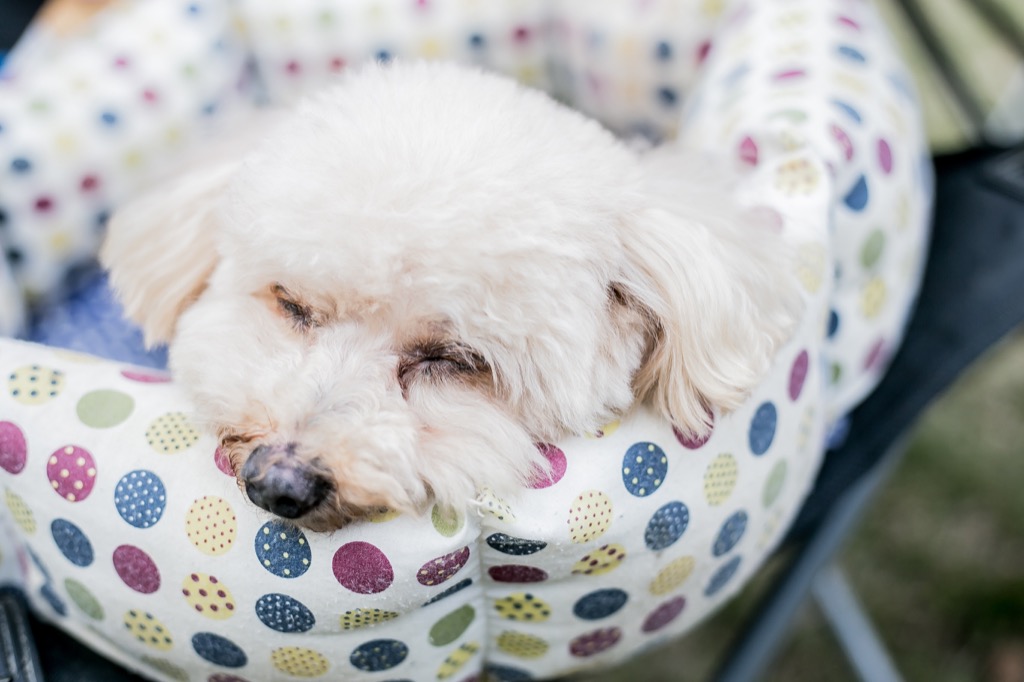
When a pet becomes depressed, “their… sleeping habits often change,” John Ciribassi, DVM, former president of the American Veterinary Society of Animal Behavior, told WebMD. Both insomnia and excess sleep can be signs of a miserable dog or cat, so don’t hesitate to make an appointment with the vet should your pet exhibit a shift in their sleeping patterns.
4
They Don’t Want to Play
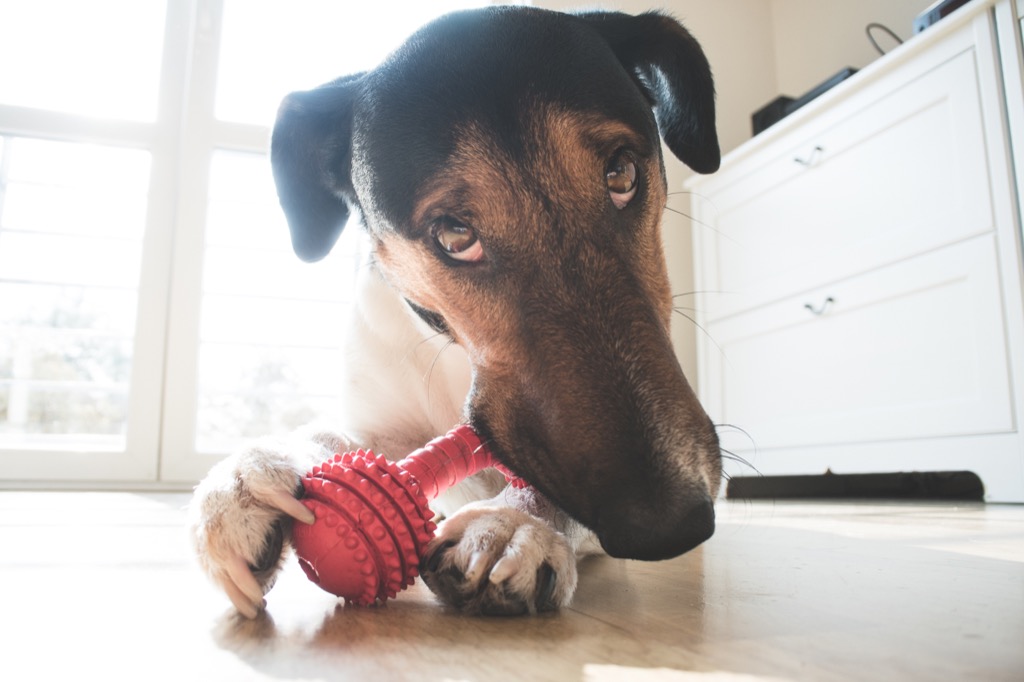
According to Dr. Ciribassi, another telltale sign of misery in pets is when “they don’t participate in the things they once enjoyed.” And this is even more likely to be a sign that your animal is in a slump if you recently relocated or someone in the family passed away, as both of these can cause depression in animals and humans alike.
5
They’re Hiding From You
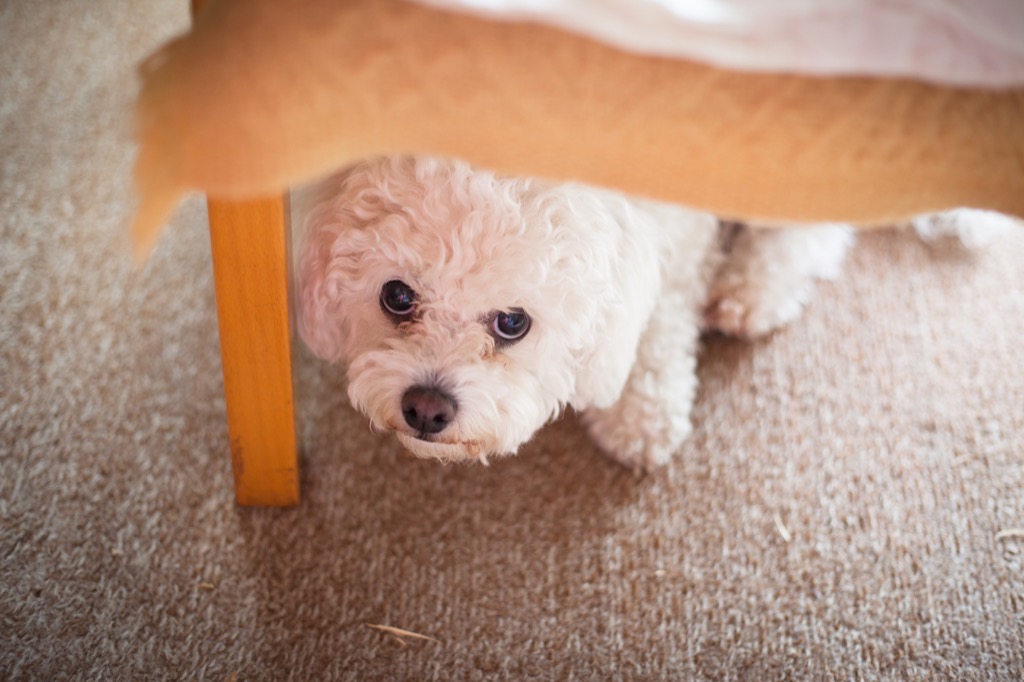
No, your animal isn’t playfully trying to initiate a game of hide-and-go-seek. If your dog or cat is nowhere to be found for the better part of the day and this is unusual for them, then it’s time to consider that they might be hiding from you for a reason: because they’re sad.
6
They’re Licking Their Paws
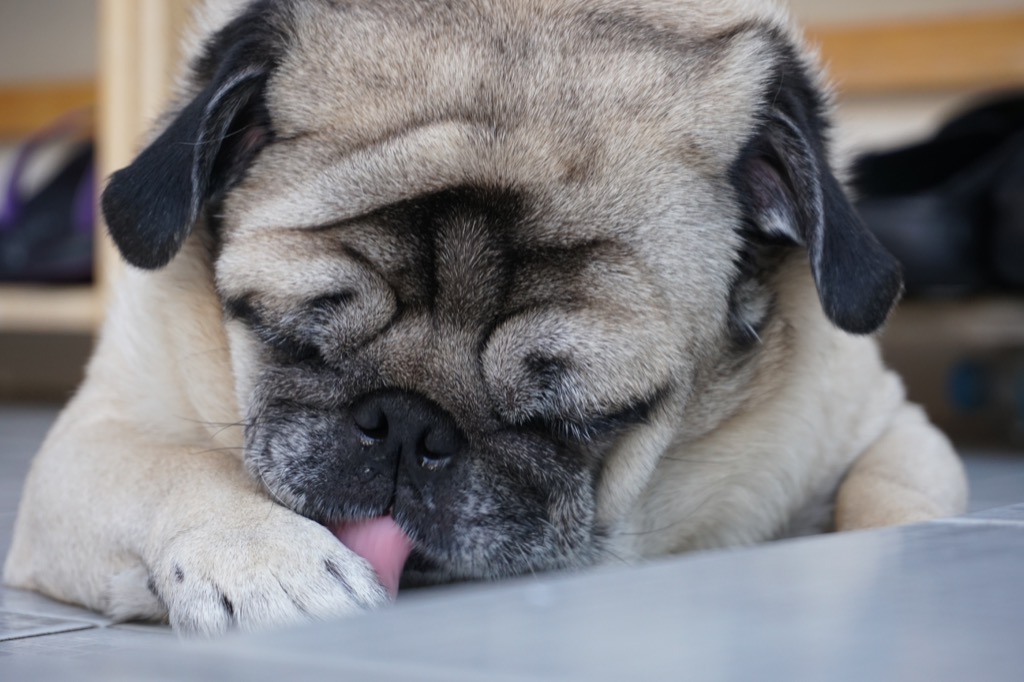
“Most people are not aware, but excessive licking (or chewing) can be a way of self-soothing,” says Dr. Gary Richter, a veterinary health expert with doggy daycare site Rover.com. “If you notice any of these signs, call your vet and schedule a check-up.”
7
They’re Going to the Bathroom Indoors
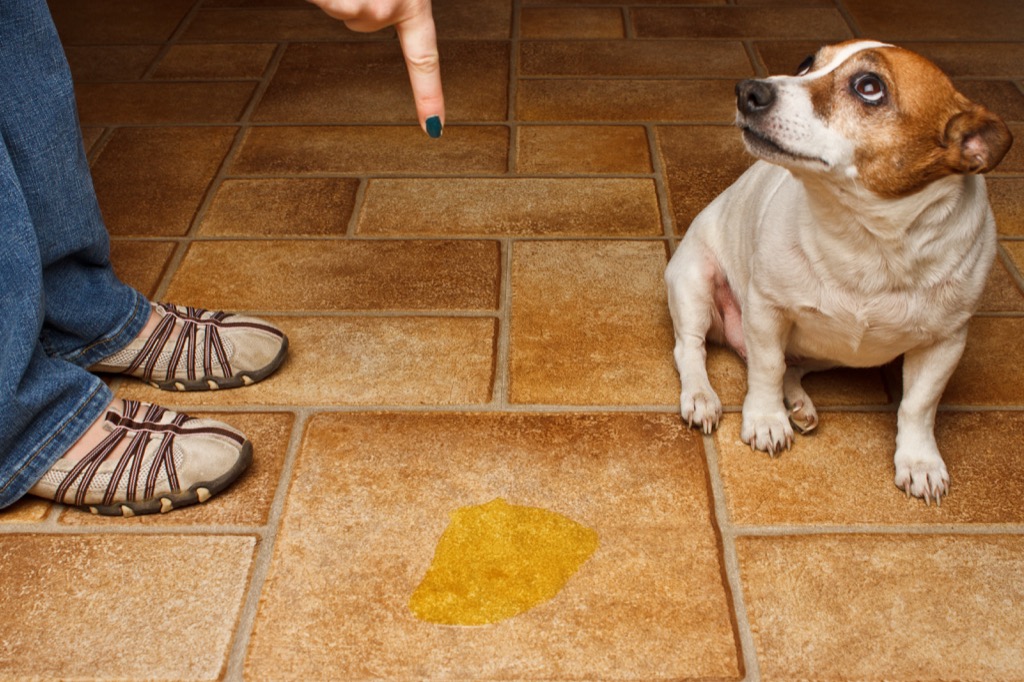
Sometimes when dogs feel separation anxiety or are stressed over a change in their lives, they will turn to this naughty move for attention. And though your first instinct when you find that your dog has gone to the bathroom in the house might be to scold them, this bad behavior could actually be your pet’s way of telling you that they need help.
8
They’re Destroying Furniture
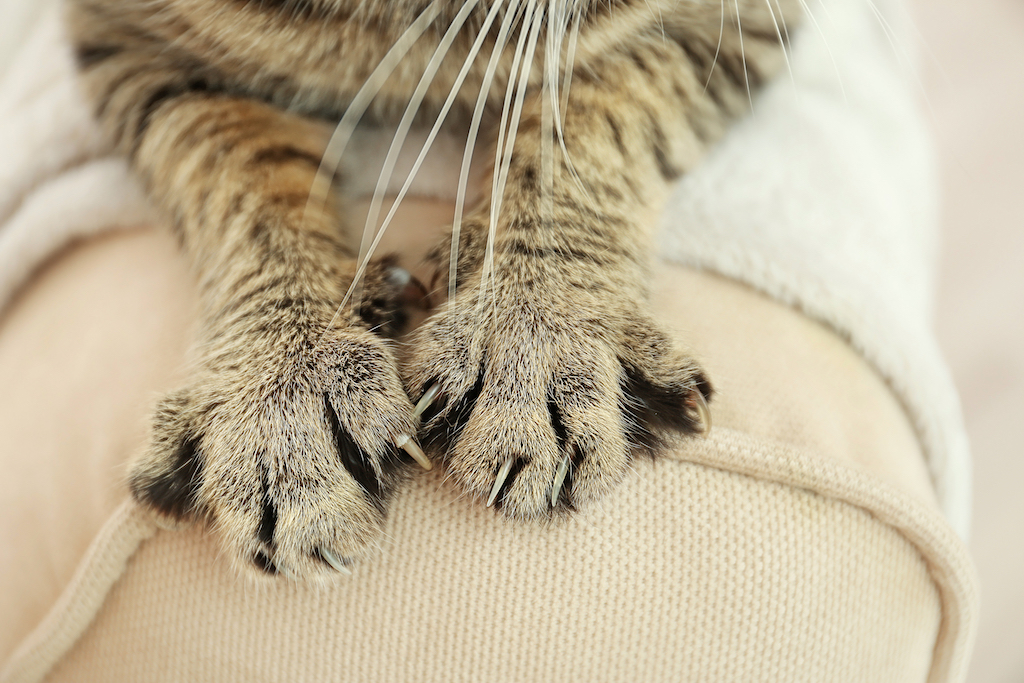
Puppies and kittens destroy shoes and sofas like it’s their job, but adult dogs and cats don’t tend to rough up the furniture unless they’re acting out. Cats especially like to break out their claws when they feel lonely or downcast. But, instead of getting angry at your feline friend for ruining your favorite couch, it’s important to instead be sympathetic to their feelings and seek treatment.
9
They’re Ignoring Commands
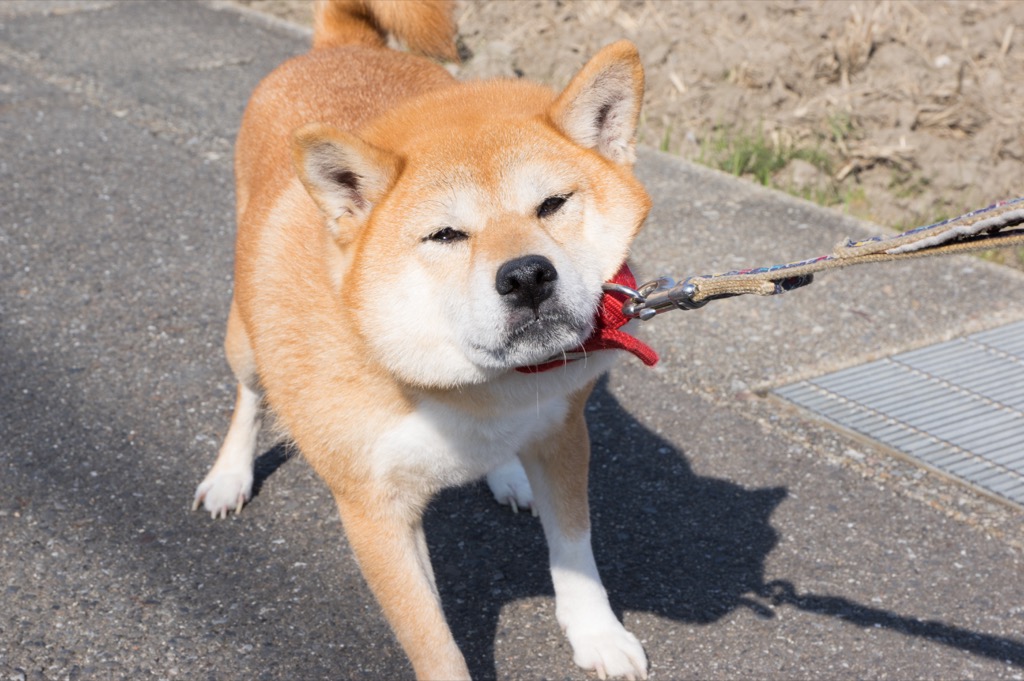
If suddenly your good boy is refusing to sit, stay, or go out for a walk, then it’s possible that their depression is manifesting as disobedience. Dogs in particular are especially susceptible to environmental and habitual changes, and this is just one of the many ways that their anxiety and agitation can present itself.
10
They’re Avoiding Affection
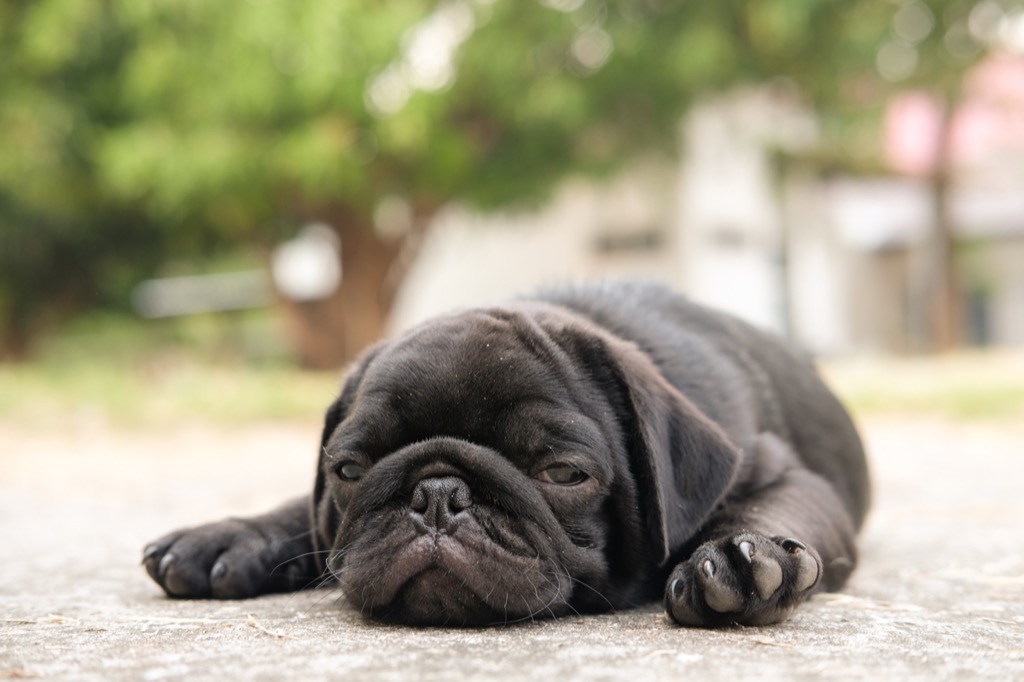
Dogs love to show their owners how much their adore them with licks and cuddles—so if your canine suddenly starts to run away whenever you approach them for a pet, it could be a sign that they’re feeling out of sorts. However, if this is happening to your pet, there’s no need to fret: According to Dr. Kelly Ryan, DVM, director of veterinary services at the Humane Society of Missouri’s Animal Medical Center of Mid-America, just going for a walk in the park or setting up a playdate with your dog’s best friend could be your simple solution.
11
They’re Increasingly Vocal
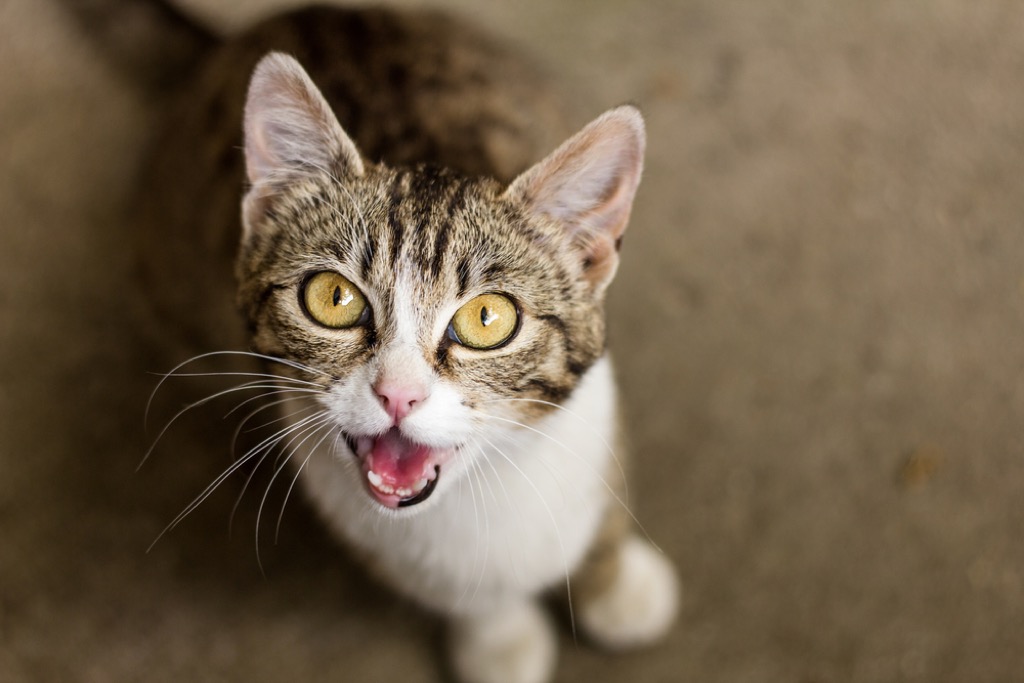
Of course every dog and cat is going to bark or meow from time to time (especially when a squirrel is taunting them just outside the window) but excessive amounts of vocalization are a cause for concern, as they could indicate that your pet is sad and stressed.
12
They’re Suddenly Needy
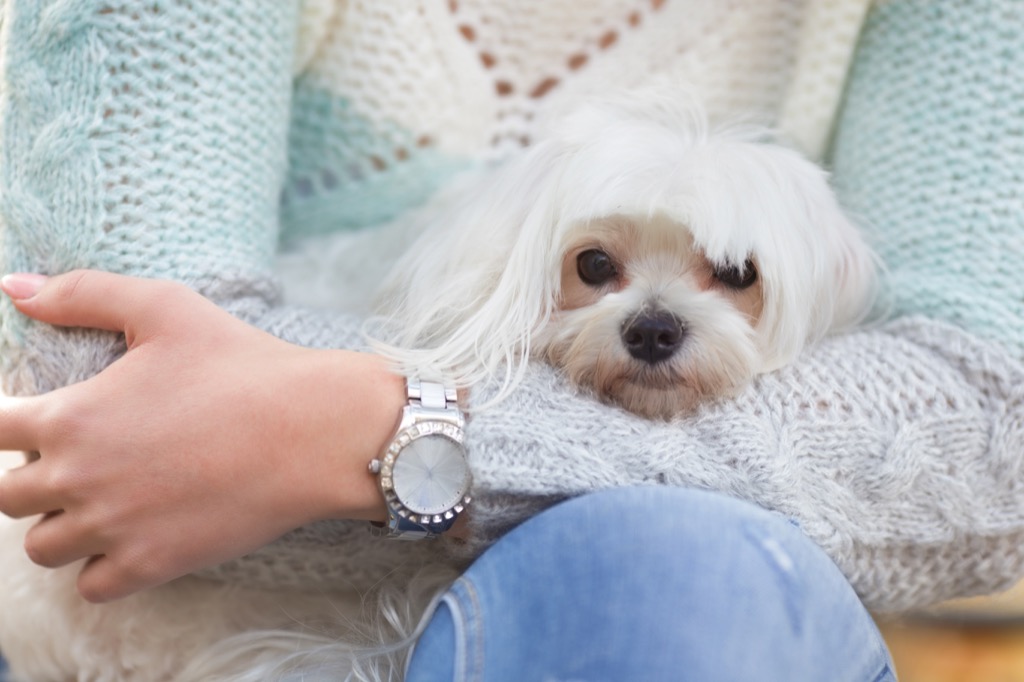
“Any changes in your dog’s normal behavior can indicate a problem,” says Jeff Travis, DVM, a veterinarian based out of Texas. A behavioral shift can be your dog’s way of letting you know that he or she is feeling depressed, so never ignore a sudden bout of clinginess.
13
They’re Lethargic
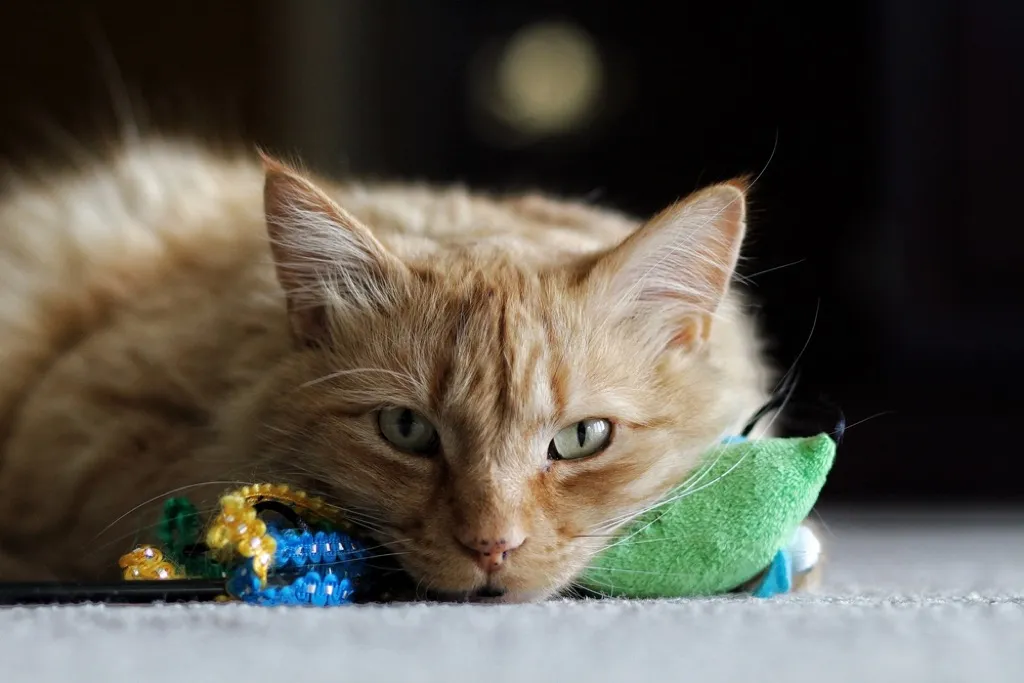
Depression manifests in cats and dogs just like it does in humans, and so pet owners often find that their miserable animals are increasingly lethargic and unusually uninterested in physical activities that once excited them.
14
They’re Grooming in Excess
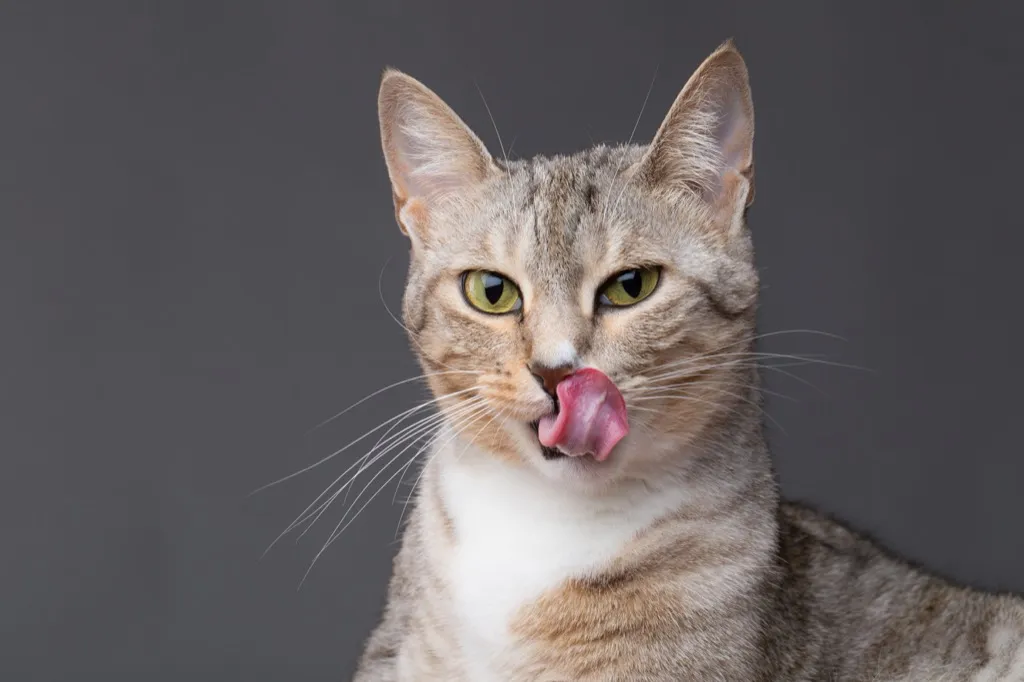
While dogs require baths and haircuts, cats can just groom themselves regularly and keep their coats healthy. However, if you notice that your feline is suddenly grooming itself constantly, even perhaps to the extent that it’s developing bald spots, this might be because it’s unhappy or anxious about something.
15
They’re Whining
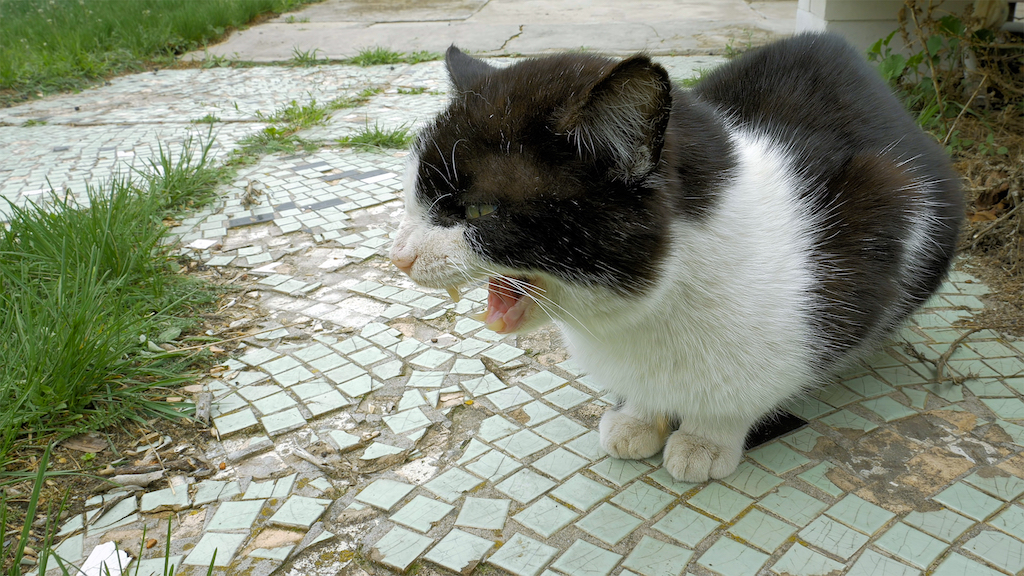
According to the ASPCA, excessive whining can be a sign that your animal is dealing with anxiety. If you think that your pet is whining as a result of feeling stressed, there are anti-anxiety medications they can take to calm them down and make them their happy selves once again.
16
They Refuse to Drink Water
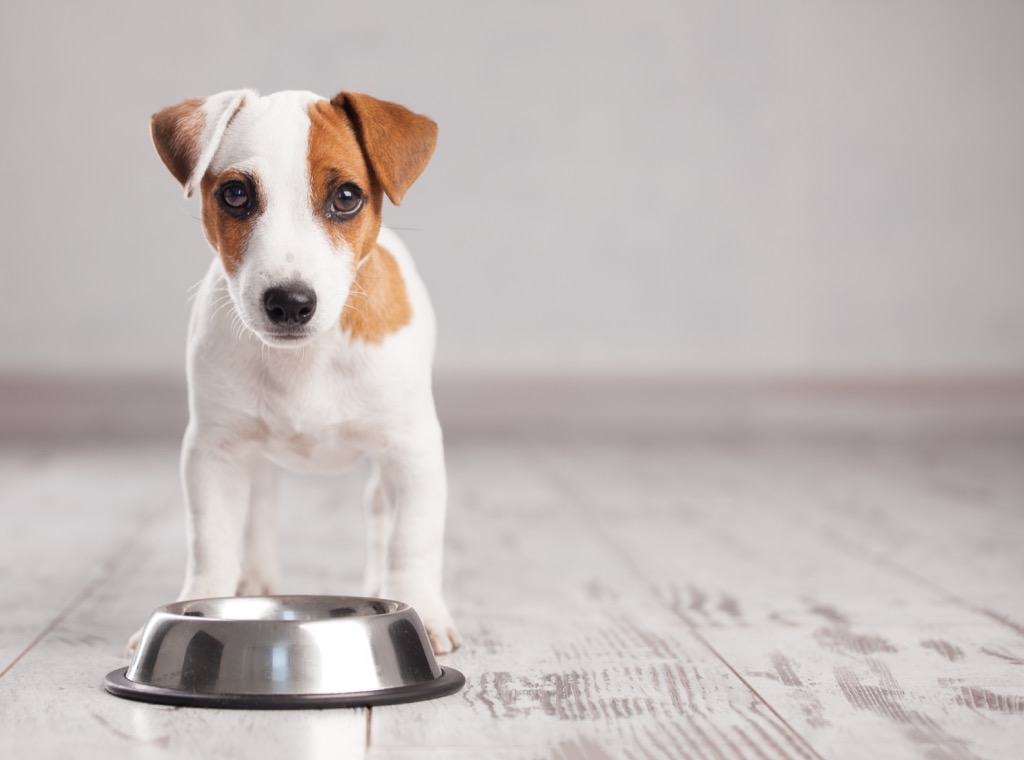
When dogs become anxious or upset, they often end up distancing themselves from their water bowls, refusing to drink up despite their thirst. However, dehydration in dogs can cause depression and further worsen the issue, so it’s important to get your animal checked out as soon as you notice their drinking habits changing.
17
They’re Easily Agitated
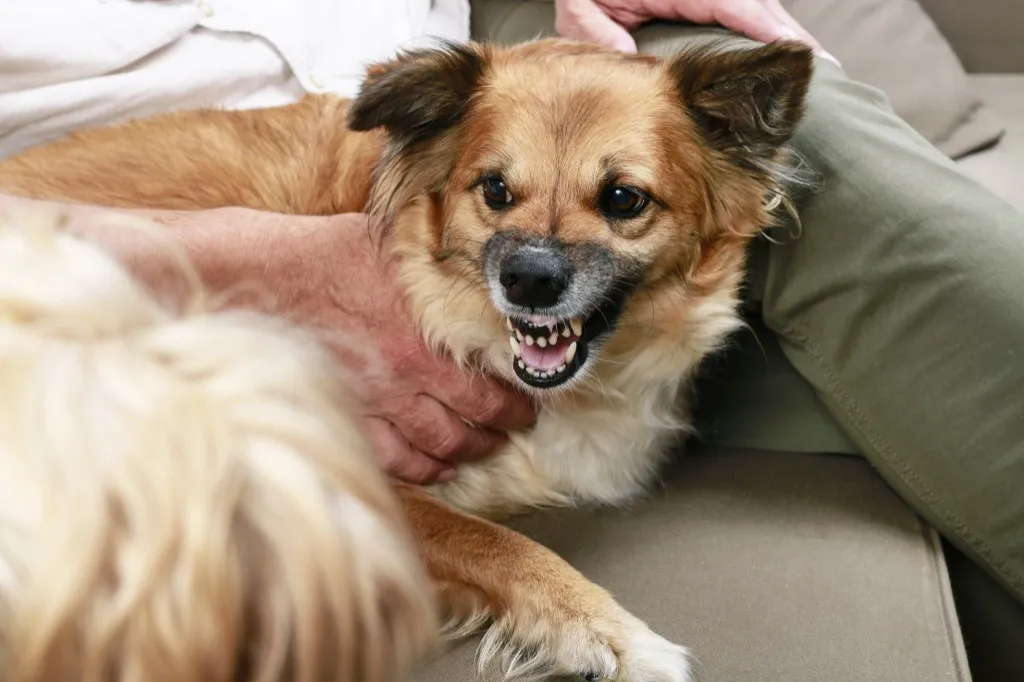
“Unhappy dogs may behave in unusual ways, such as having less tolerance and snapping or growing at other animals or people,” explains Dr. Richter. If you notice this happening, the veterinary expert says that you shouldn’t punish your pet, as this could make them even more defensive and won’t get to the root of the problem.
18
They’re Losing Weight

If your cat or dog is losing weight and you haven’t changed anything about their diet or exercise regimen, then they may be suffering from a decreased appetite due to depression. And, seeing as most dogs will literally eat trash if you let them, you know it’s a serious health concern when your canine loses weight of their own volition.
19
They Don’t Want to Go Outside
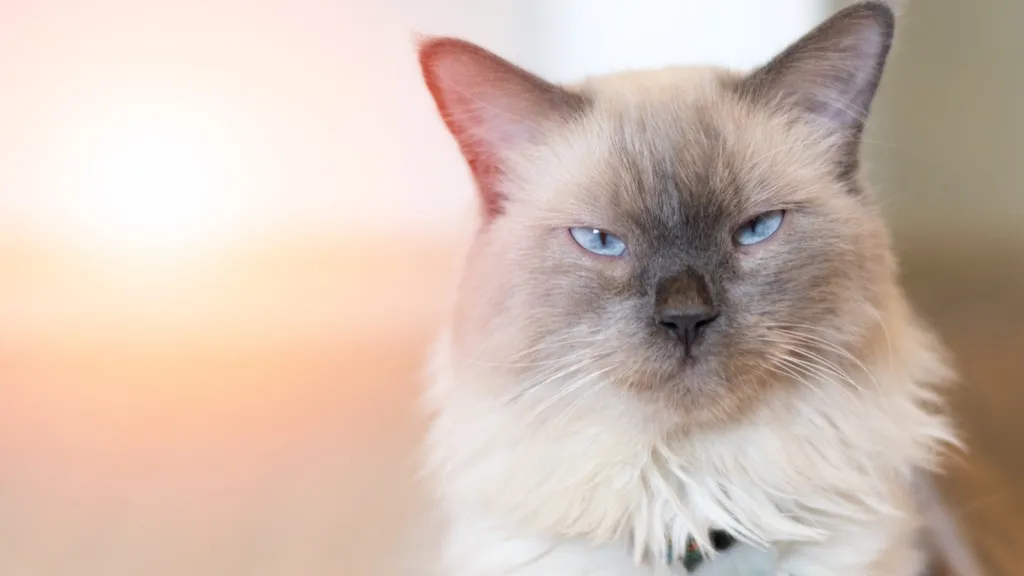
Dogs (and outdoor cats) love getting their paws on every patch of grass they can find, so an adventurous pet refusing to go outside is never a good sign. If you’re wiggling your pet’s leash or opening the door only for your pet to run away, then it’s probably time to seek the advice of a professional.
20
They’re Pacing Endlessly
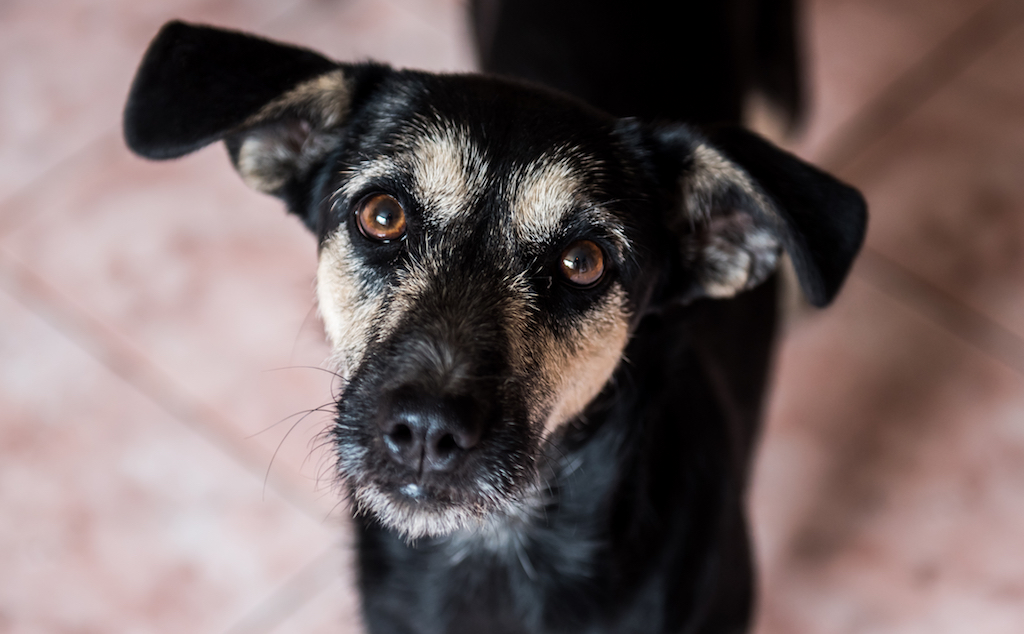
“Many [depressed] dogs will pant, pace, drool, and whine almost incessantly or without provocation,” writes Dr. Ernie Ward, DVM, owner of Seaside Animal Care. If you notice your dog pacing around the house, Dr. Ward advises to seek professional help immediately so that “[your pet is] better able to cope with daily life.”